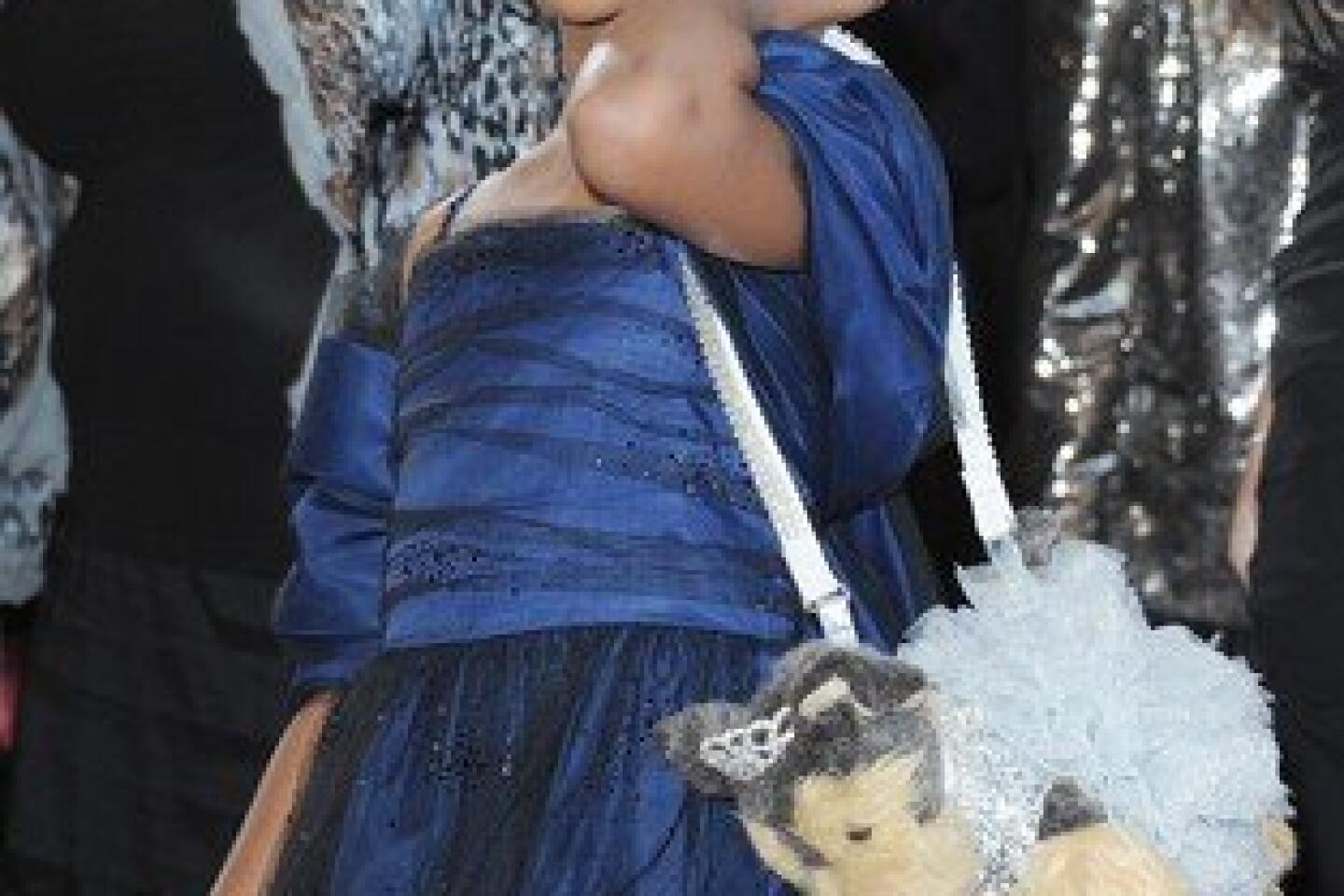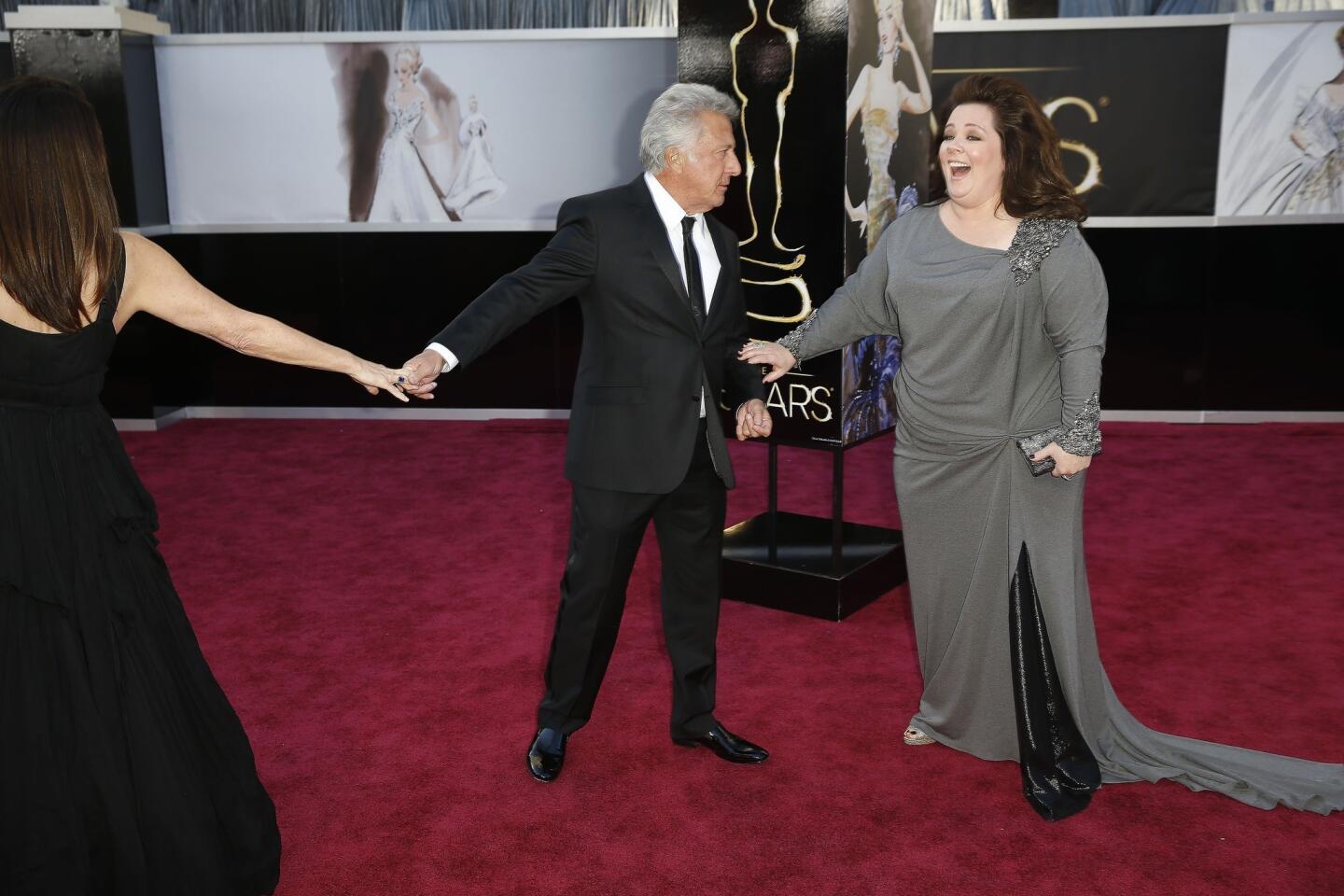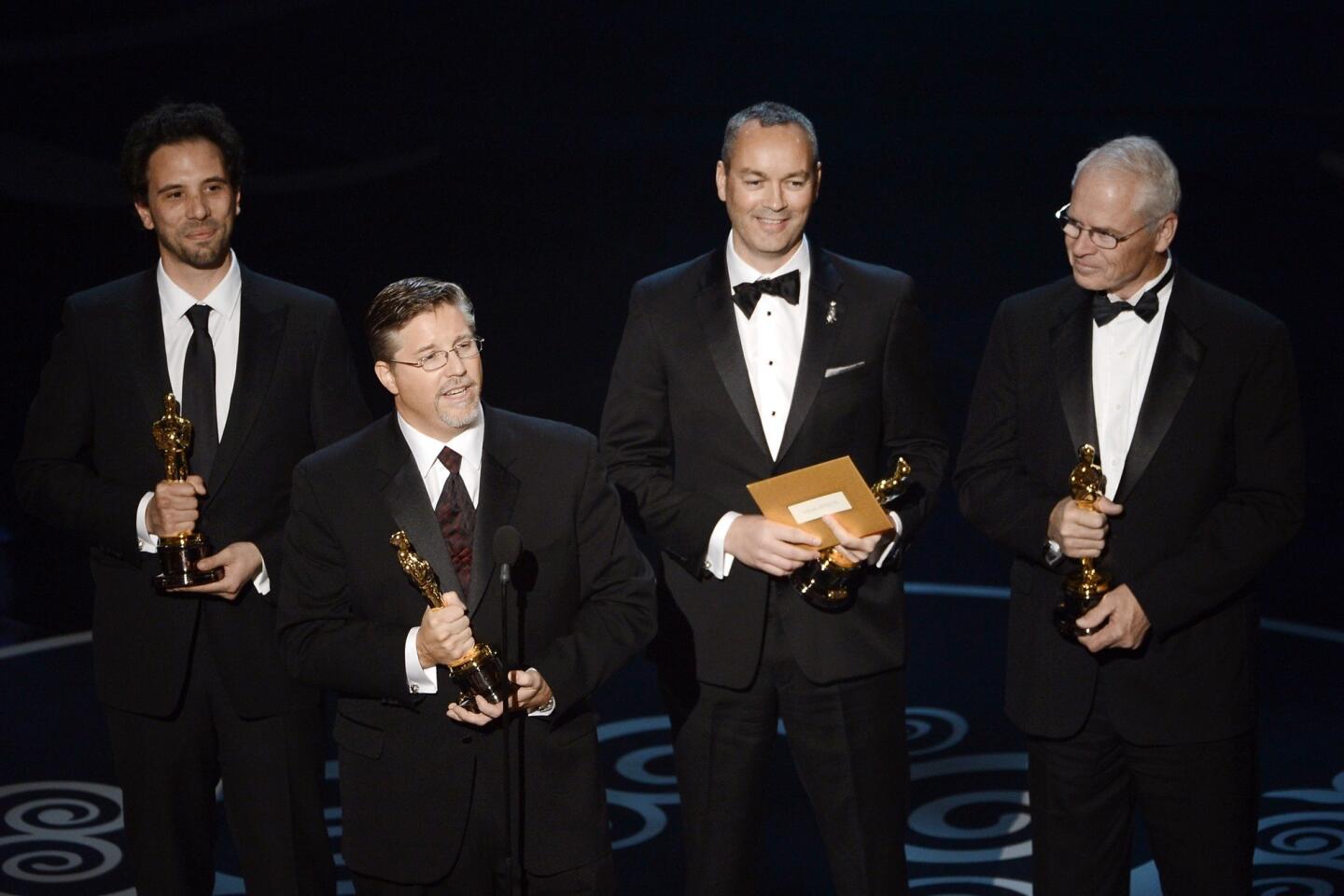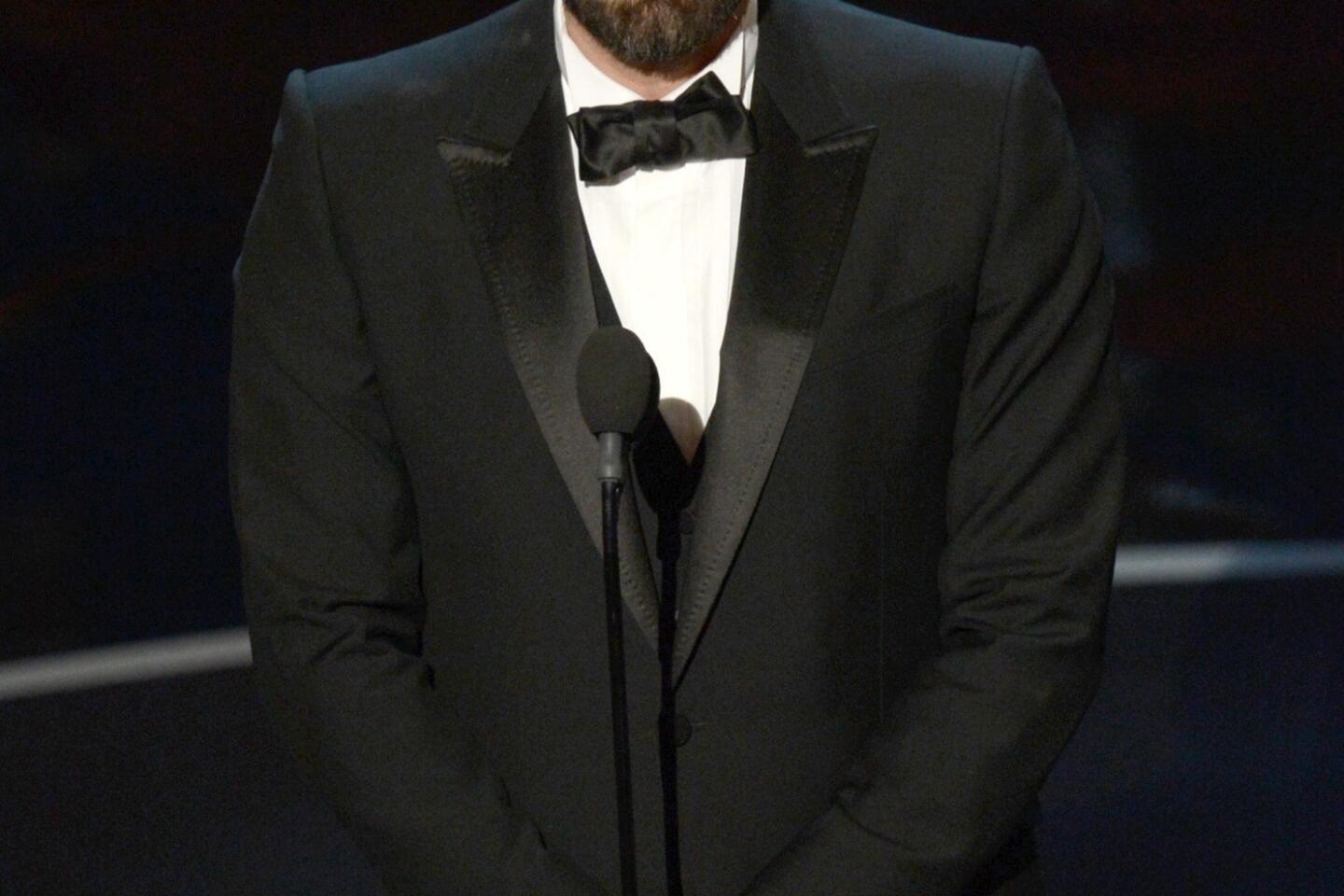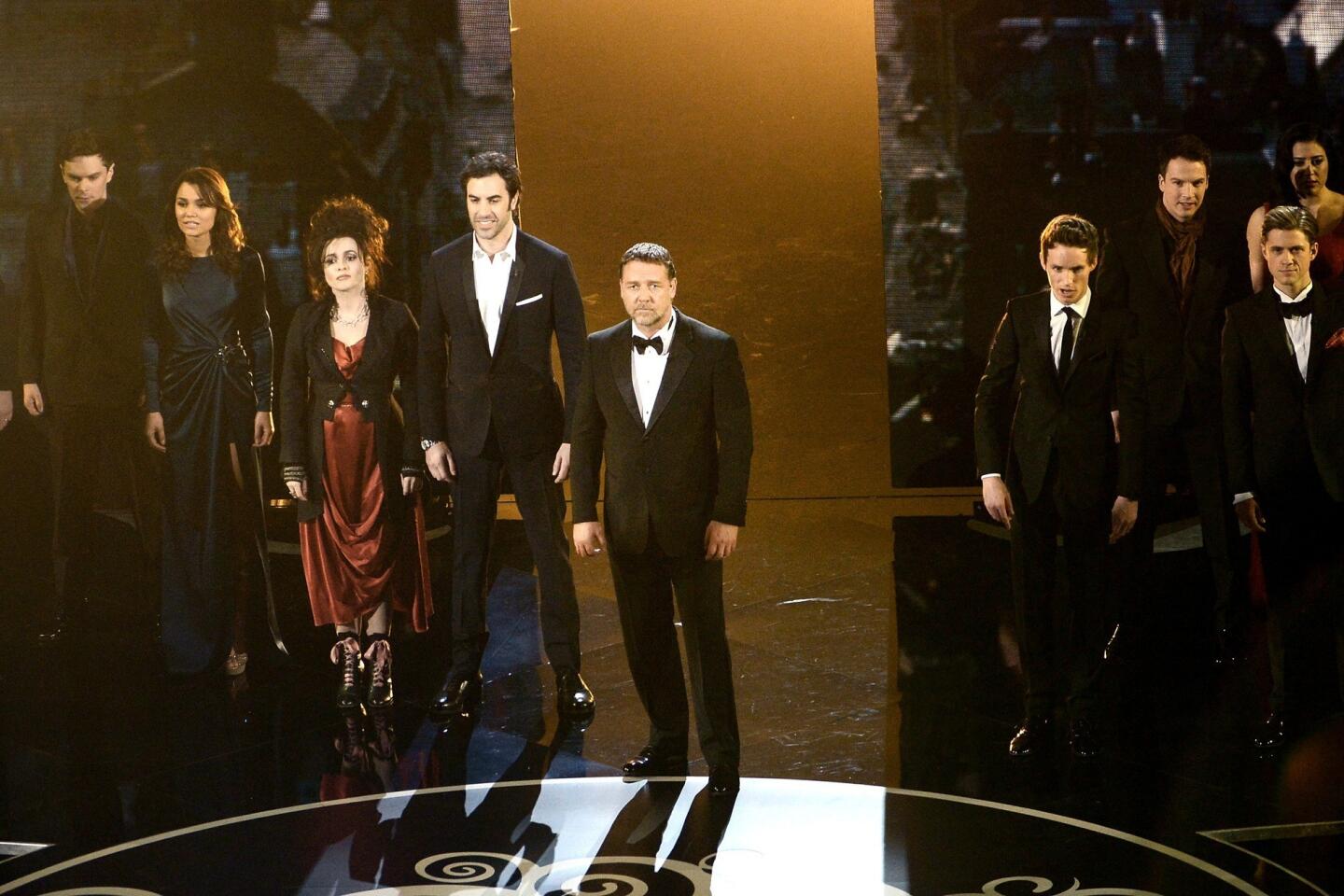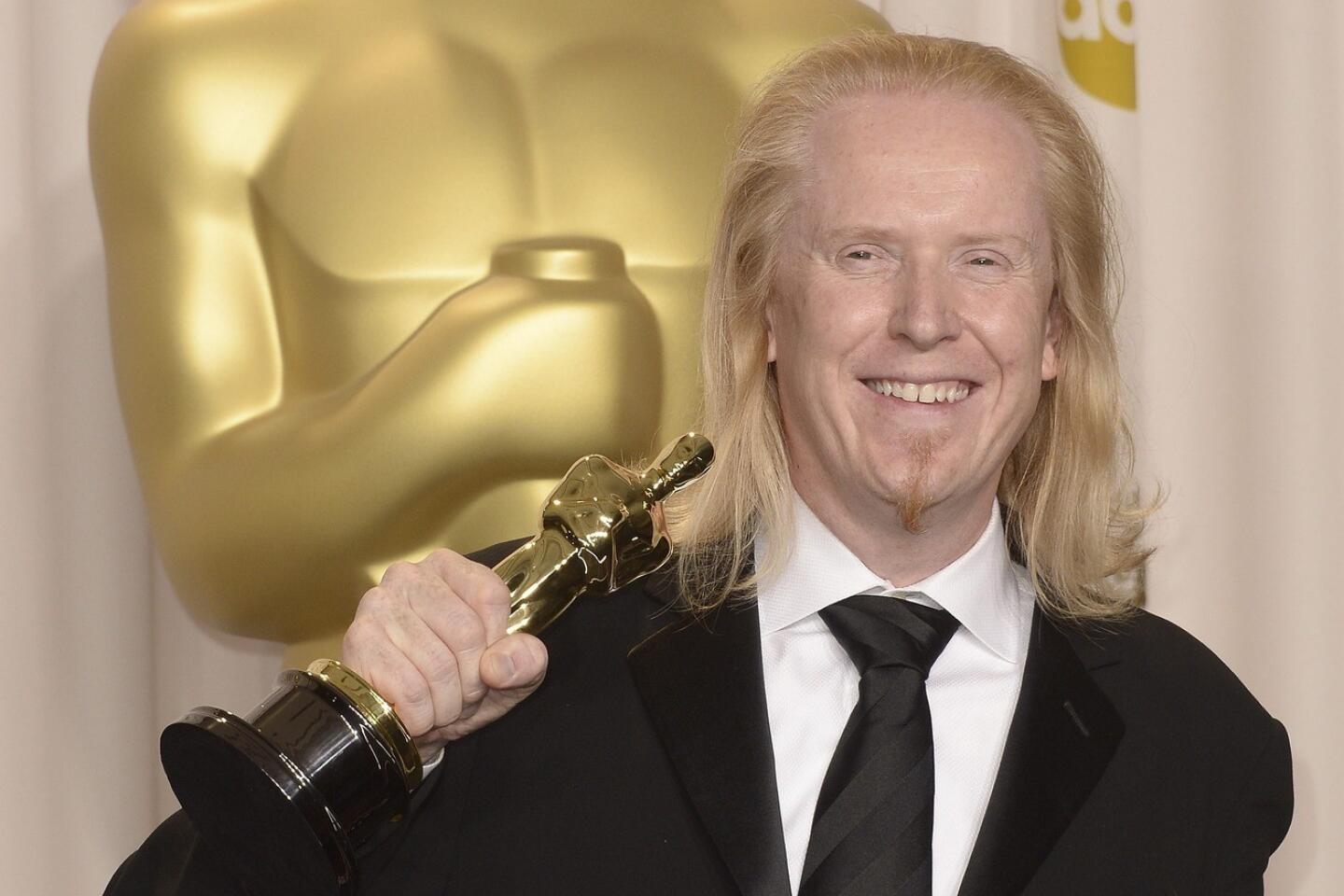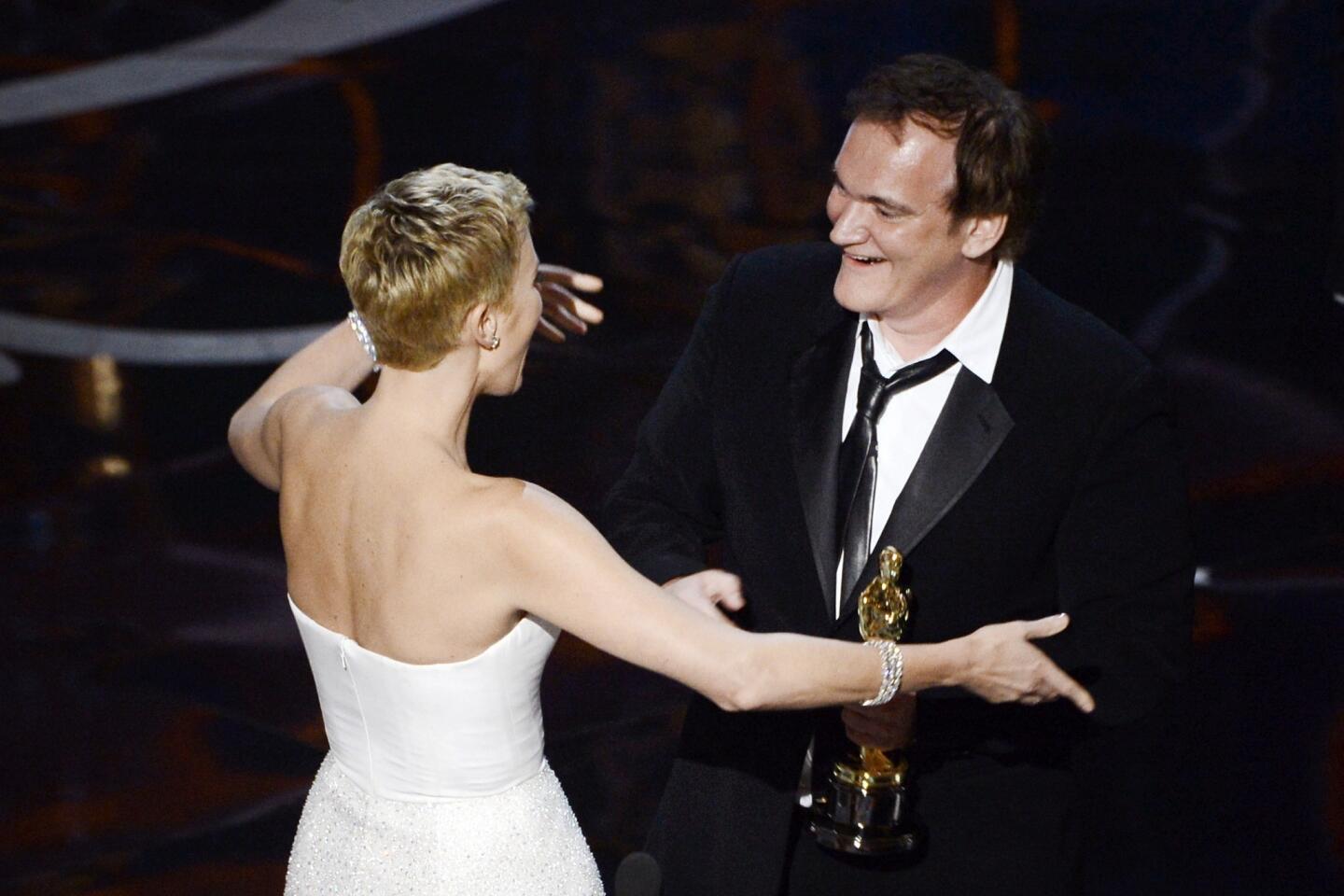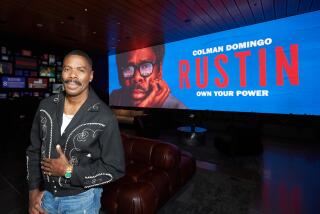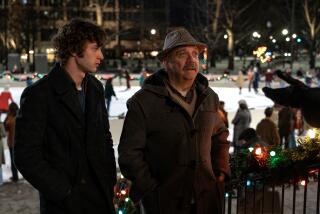Oscar Isaac’s singing experience helps him go ‘Inside Llewyn Davis’
The Coen brothers’ new film, “Inside Llewyn Davis,” covers one drain-circling week in the life of a marginally successful folk singer in 1961 New York City, inspired in part by the memoir of folk personality Dave Van Ronk.
But to be clear, Llewyn Davis is not Bob Dylan. He’s not Van Ronk. He’s not even Oscar Isaac.
“The description at the audition was, ‘He is not Dylan. He is not the poet. He is a workman, a blue-collar guy from the boroughs.’ So I latched on to that idea, the workman, and what that meant,” says Isaac. In person, the actor playing the title role is a bundle of focused energy — unlike the relentlessly internal Davis, a hapless man buffeted by fate and self-sabotage. “It was there in the script, the recessive quality to him.”
“I read ‘The Mayor of MacDougal Street,’ but Dave Van Ronk was a big, gregarious, big personality. The way he plays and sings, he sometimes sounds like a wild man. So it’s obviously not Dave Van Ronk at all — obviously not from a physical standpoint,” says the compact, Guatemalan-Cuban American actor and singer, “but from a personality standpoint, this guy’s not the mayor of anything.”
Far from a star on the scene, Llewyn plays “basket shows” for peanuts and spends much of the film securing sleeping quarters for a given night. He lugs about the streets of New York, at various times, a house cat (not his) and a box of unsold records (his). Without malice, he manages to mess up most of his relationships as well as his career. He makes so many wrong turns he can’t help but end up where he began. But if he’s outraged by misfortune, he barely lets on.
Isaac, whose rich, expressive singing and guitar playing is captured in long, complete takes in the film, had to tread the personal tightrope of a character who is determined not to parade his feelings yet makes his meager living expressing himself through music. A good friend offered him a Charles Bukowski poem, “Bluebird,” as a way in.
TIMELINE: The Academy Awards through the years
“It starts, ‘there’s a bluebird in my heart that / wants to get out / but I’m too tough for him … I pour whiskey on him and inhale cigarette smoke / and the whores and the bartenders … never know that / he’s / in there,’” he recites, with little paraphrasing.
“He’s got this rich, beautiful, inner life, but he just doesn’t show it to anybody. The only time he exposes it is when he plays his songs. That’s what he’s most loyal to. So I thought about that and I thought about the comedy … I started watching a lot of Buster Keaton’s stuff. Somebody who has a lot of ... happen to him but carries on and we all think it’s really hilarious. It’s like Buster Keaton and Charles Bukowski’s love child.”
The Juilliard grad and New York stage veteran confesses that such emotional restraint wasn’t easy for him.
“It was tough, man, especially coming from theater,” he says, then suddenly sustains a note that could be from Al Jolson — or Ethel Merman: “Aaaaaaaa!”
INTERACTIVE: Best and worst Oscar moments since 2008
Isaac has performed in punk and rock bands, so he had the layer of comfort playing and singing that experience brings.
“Still, I feel immediate shame whenever I play live,” he says with a wry smile. “It’s a weird thing, man, to stand up in front of people and make sounds people don’t normally make. ‘Laaaaa!’ It’s a very vulnerable thing. And [the film’s] not a musical, so it’s not like,” he blasts that Broadway belt again, “‘Lleww-wyyn!’ It’s, ‘I will open up and you will see what you see.’ I mean, he’s probably too introverted for even the coffeehouses.”
He adds, laughing, “But at the same time, I was used to that feeling of shame. And Llewyn’s dealing with some aspects of humiliation, for sure.”
While shooting another film, Isaac had used his down time to play new compositions at solo acoustic shows in local venues. After that, the audition for Joel and Ethan Coen came up.
VIDEO: Highlights from the Envelope Screening Series
“It was the exact opposite of Llewyn — things lined up perfectly,” he says. “I had my chops up a little. When I got the audition, I started doing this around New York, nonstop.
“So I was able to synthesize my thoughts about the character and his circumstances with my real voice, which has really just come into its own in the last couple of years: ‘That’s what I sound like, that’s not affectation.’ I’m not trying to sound like Robert Smith anymore,” he says with a chuckle.
Isaac sees making “a very un-external character, not self-indulgent” and singing his guts out as similar challenges: “It’s very direct and it’s not sentimental. The best folk music is that: Three chords and the truth.”
More to Read
Only good movies
Get the Indie Focus newsletter, Mark Olsen's weekly guide to the world of cinema.
You may occasionally receive promotional content from the Los Angeles Times.

